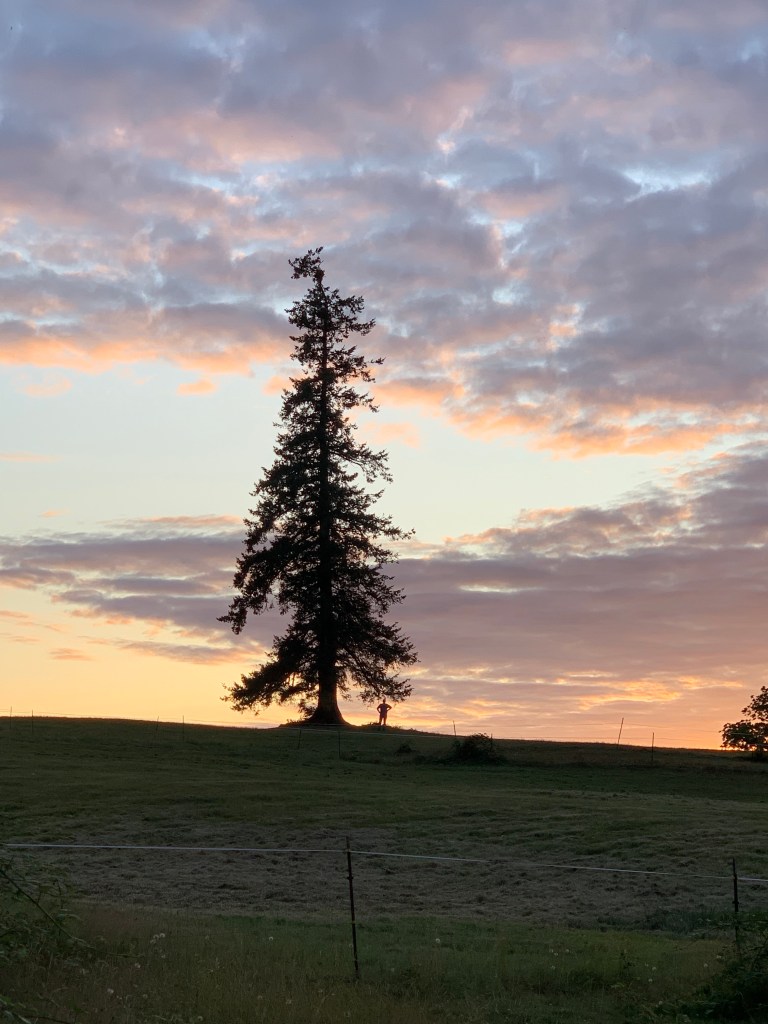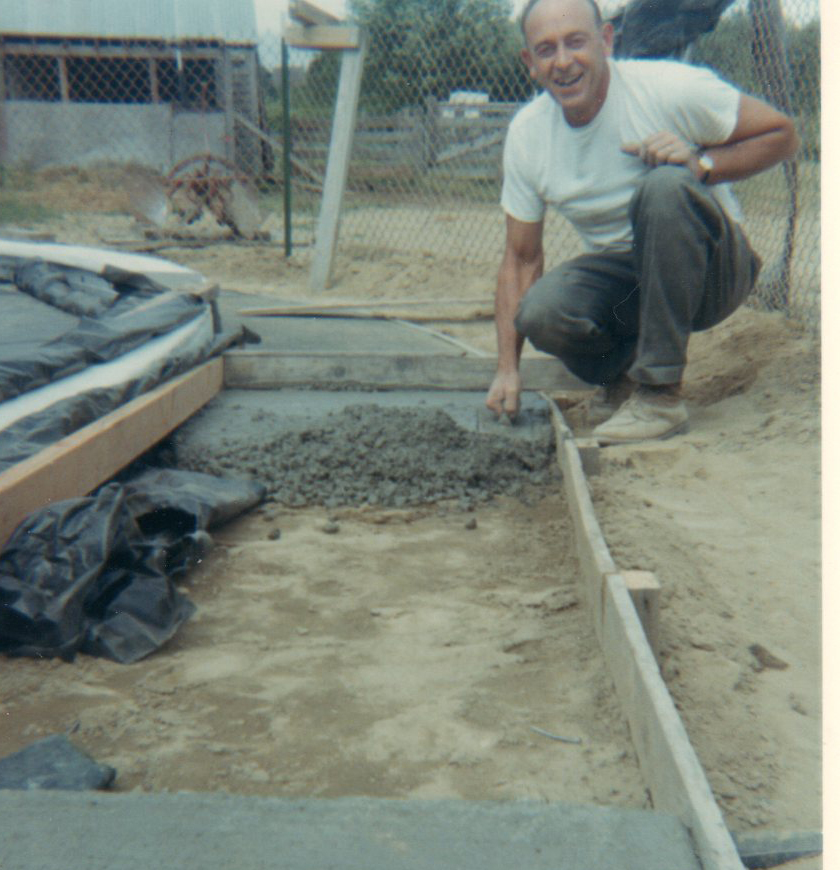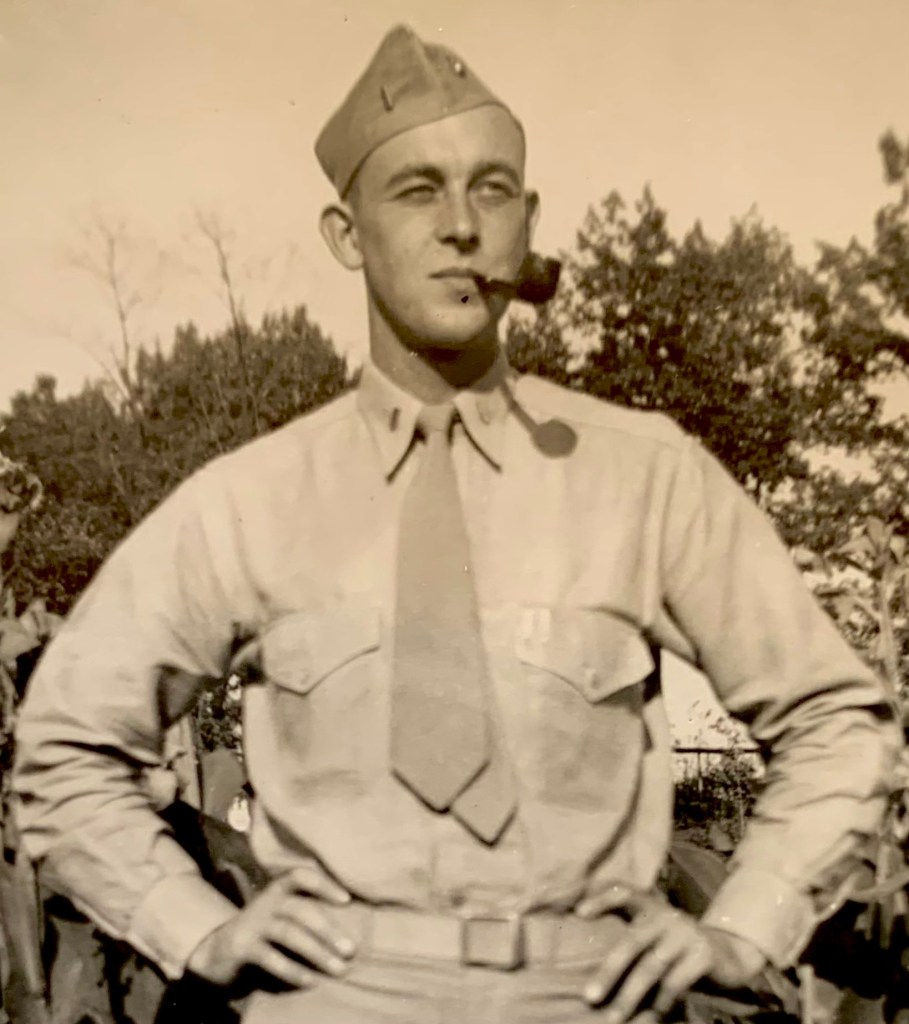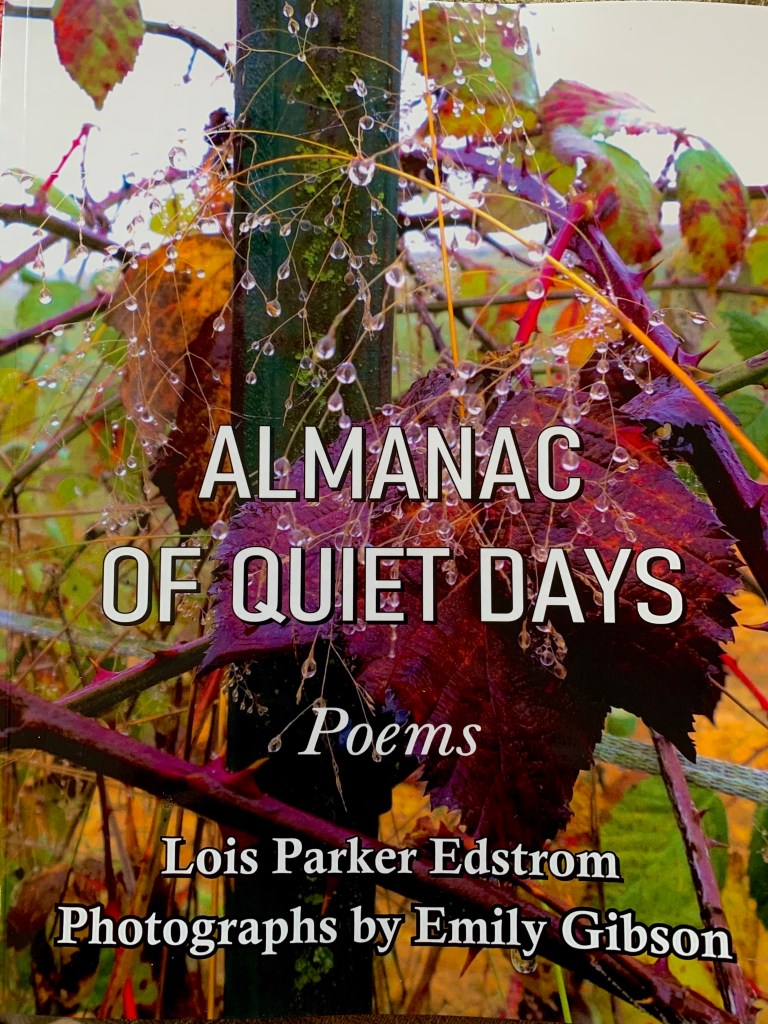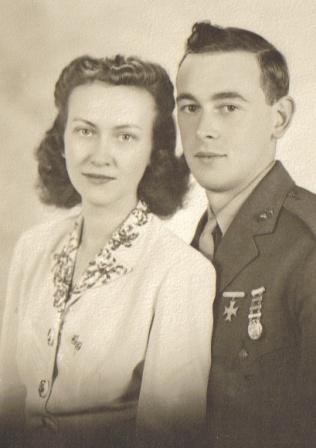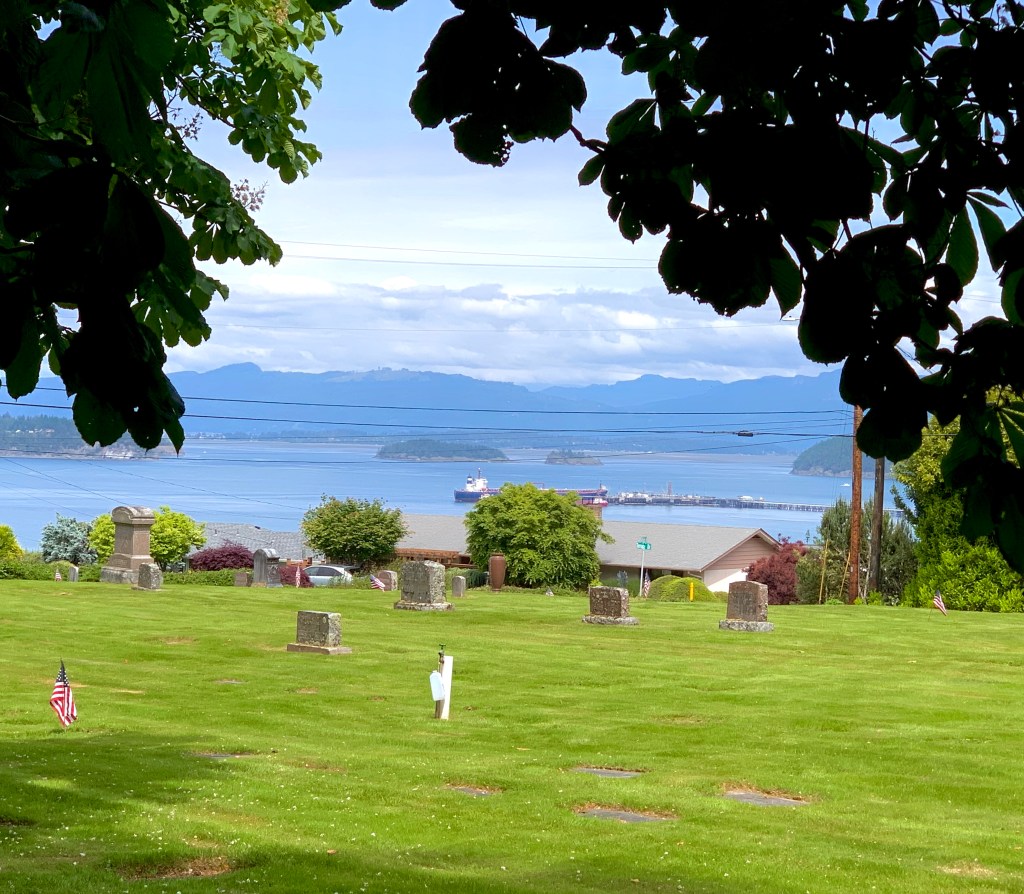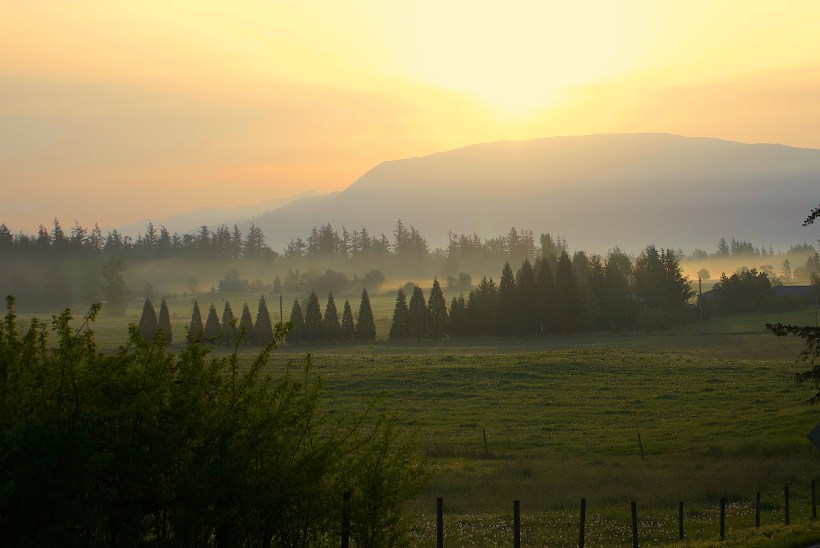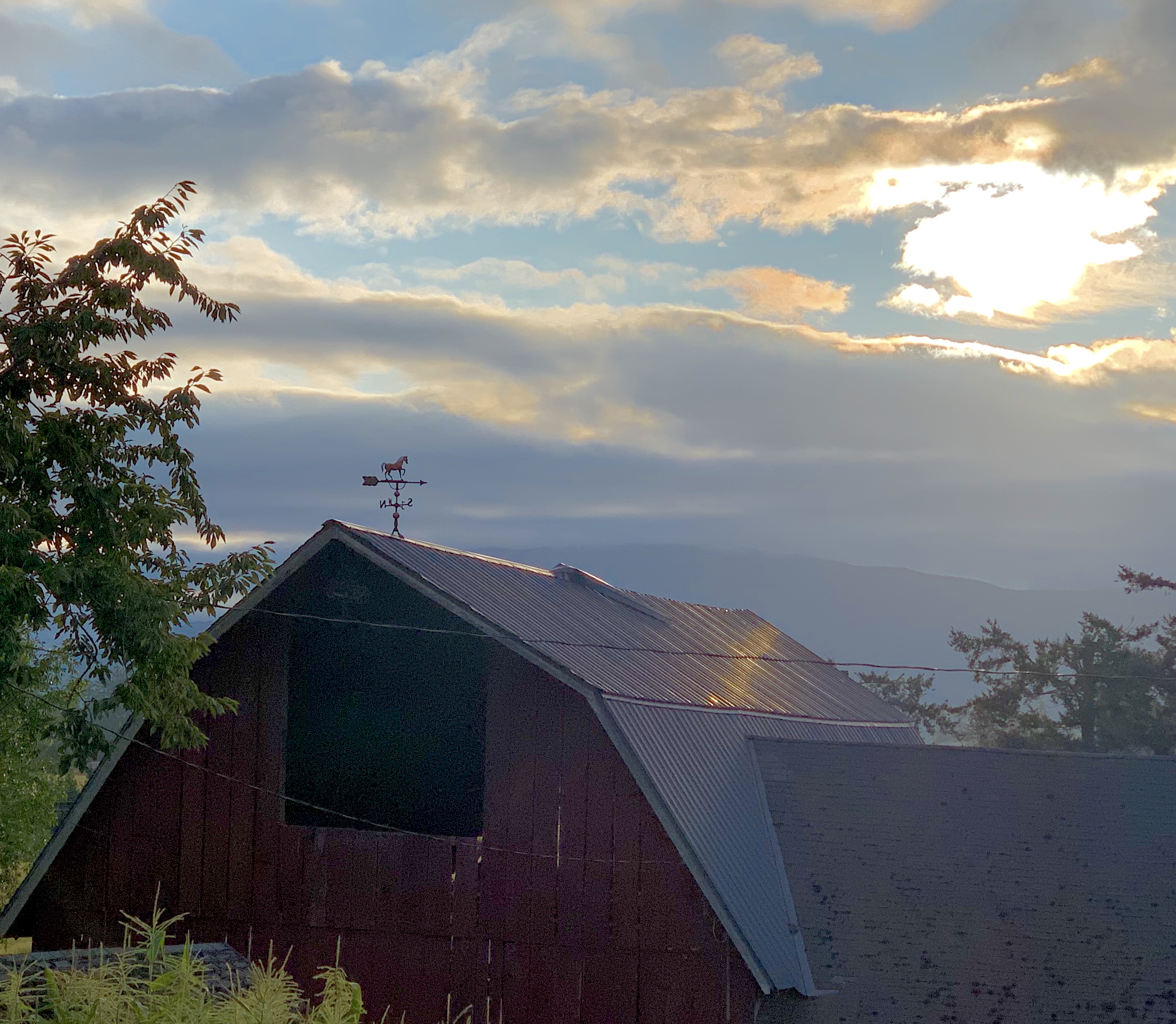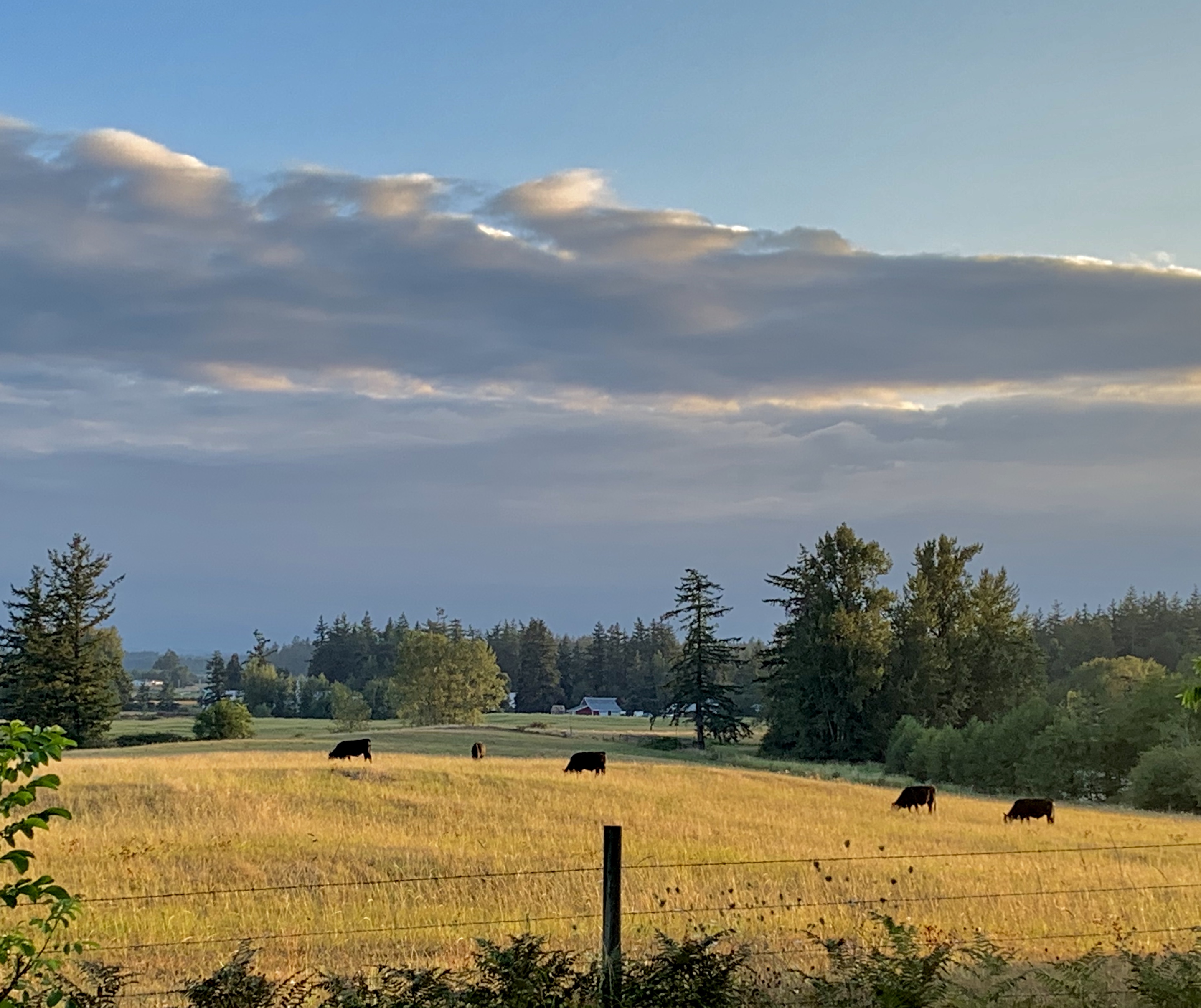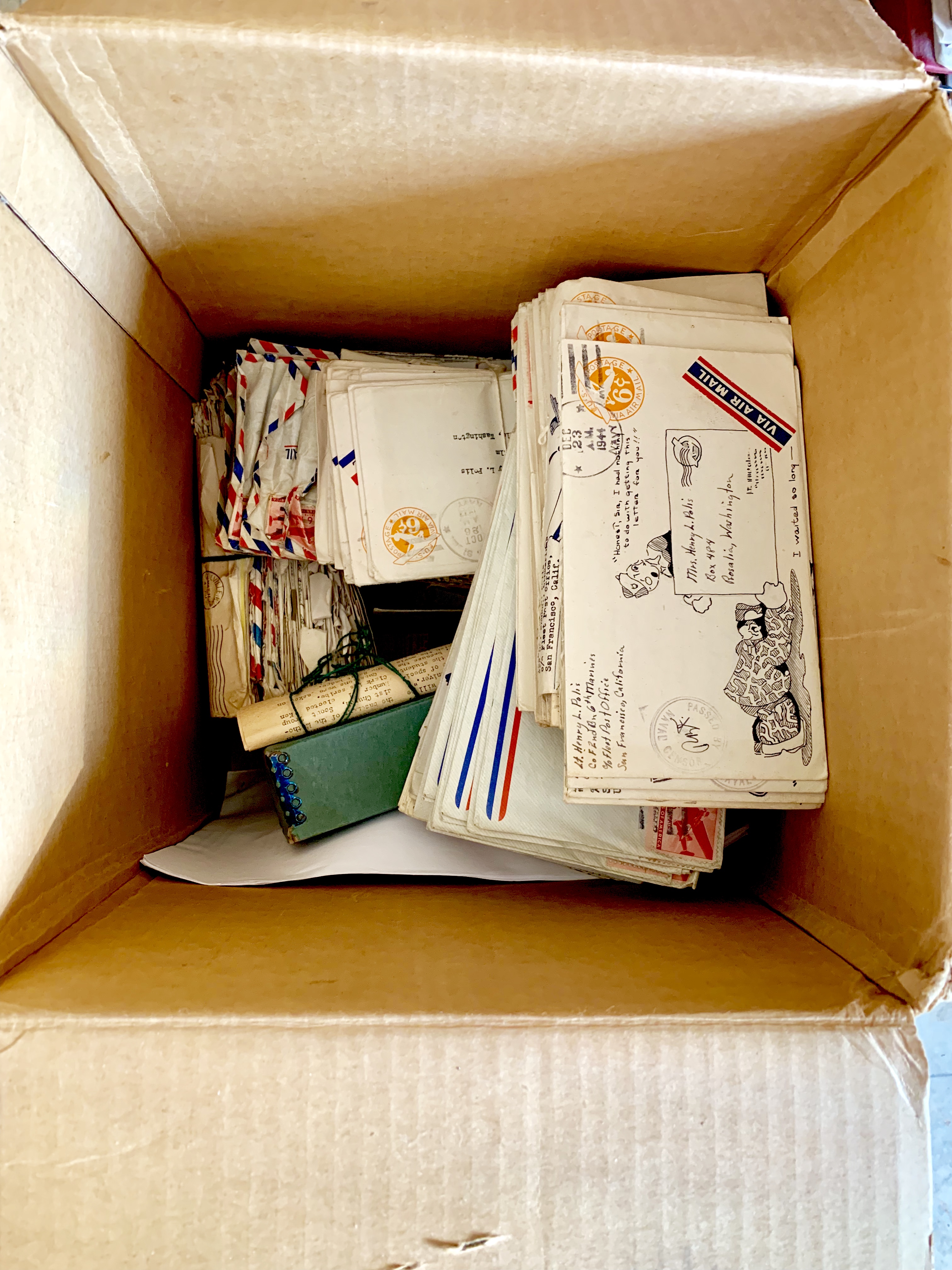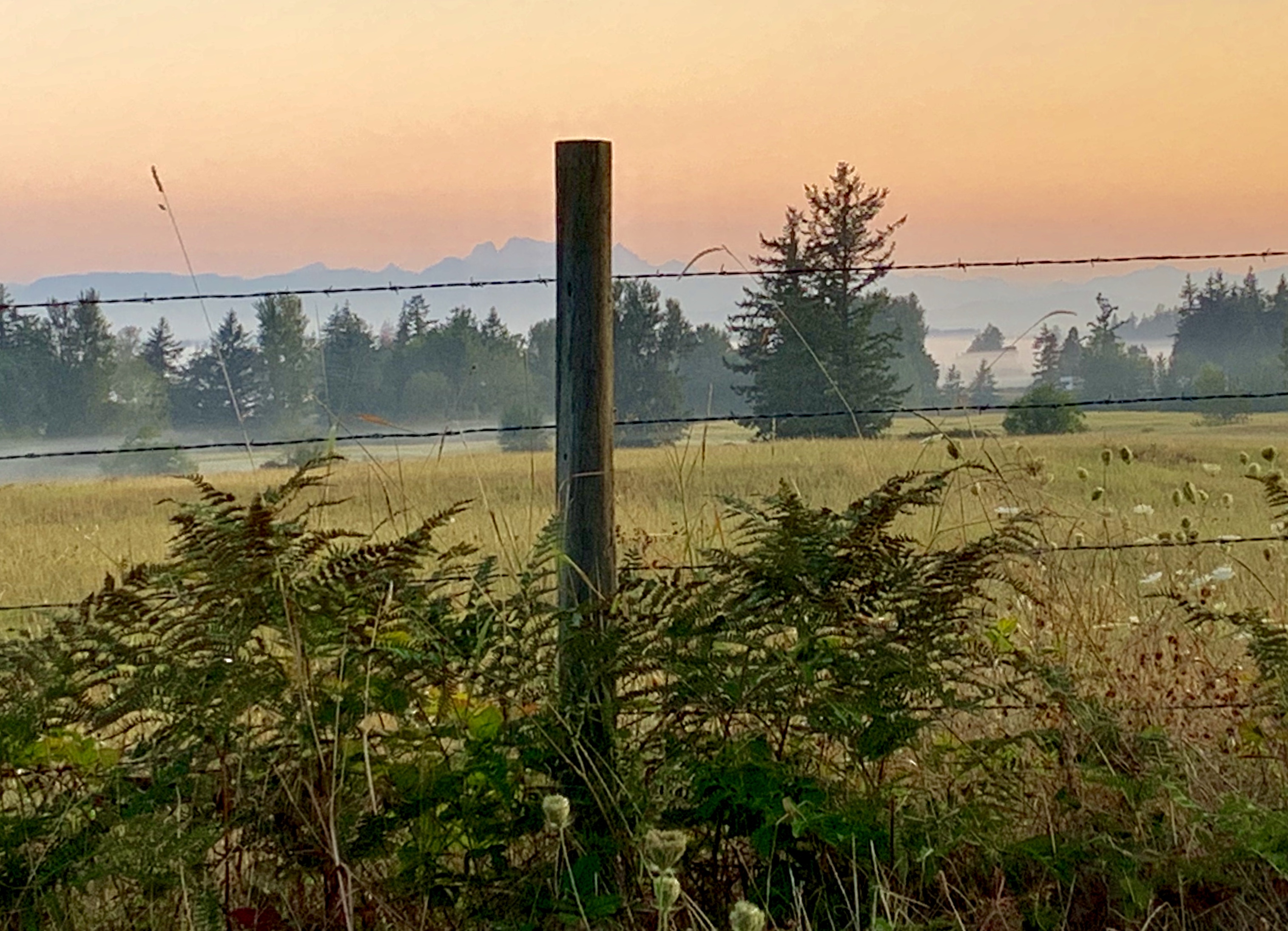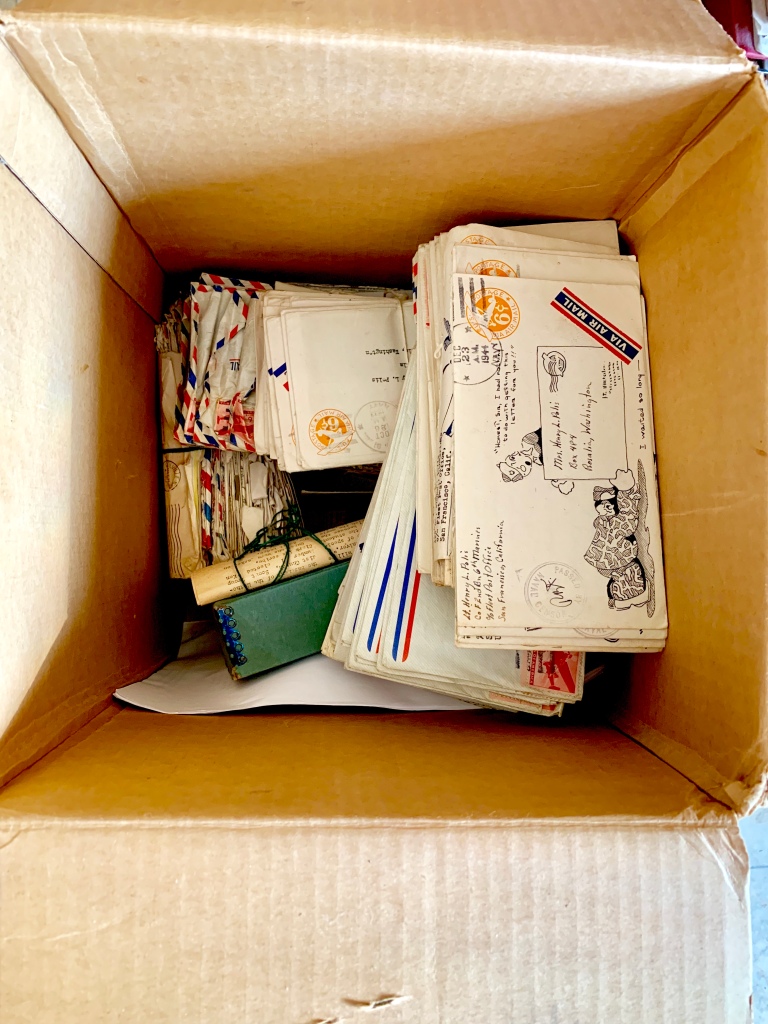

I love you forever
my father’s letter tells her
for forty-nine pages,
from the troopship crossing the Atlantic
before they’d ever heard of Anzio.
He misses her, the letter says,
counting out days of boredom, seasickness,
and changing weather,
poker games played for matches
when cash and cigarettes ran out,
a Red Cross package—soap,
cards, a mystery book he traded away
for The Rubaiyyat a bunkmate didn’t want.
He stood night watch and thought
of her. Don’t forget the payment
for insurance, he says.
My mother waits at home with me,
waits for the letter he writes day by day
moving farther across the ravenous ocean.
She will get it in three months and
her fingers will smooth the Army stationery
to suede.
He will come home, stand
beside her in the photograph, leaning
on crutches, holding
me against the rough wool
of his jacket. He will sit
alone and listen to Aïda
and they will pick up their
interrupted lives. Years later,
she will show her grandchildren
a yellow envelope with
forty-nine wilted pages telling her
of shimmering sequins on the water,
the moonlight catching sudden phosphorescence,
the churned wake that stretched a silver trail.
~Ellen Steinbaum, “Letter Home” from Container Gardening


The dead say little in their letters
they haven’t said before.
We find no secrets, and yet
how different every sentence sounds
heard across the years.
My father breaks my heart
simply by being so young and handsome.
He’s half my age, with jet-black hair.
Look at him in his navy uniform
grinning beside his dive-bomber.
It’s silly to get sentimental.
The dead have moved on. So should we.
But isn’t it equally simple-minded to miss
the special expertise of the departed
in clarifying our long-term plans?
They never let us forget that the line
between them and us is only temporary.
Get out there and dance! the letters shout
adding, Love always. Can’t wait to get home!
And soon we will be. See you there.
~Dana Gioia from “Finding a Box of Family Letters“
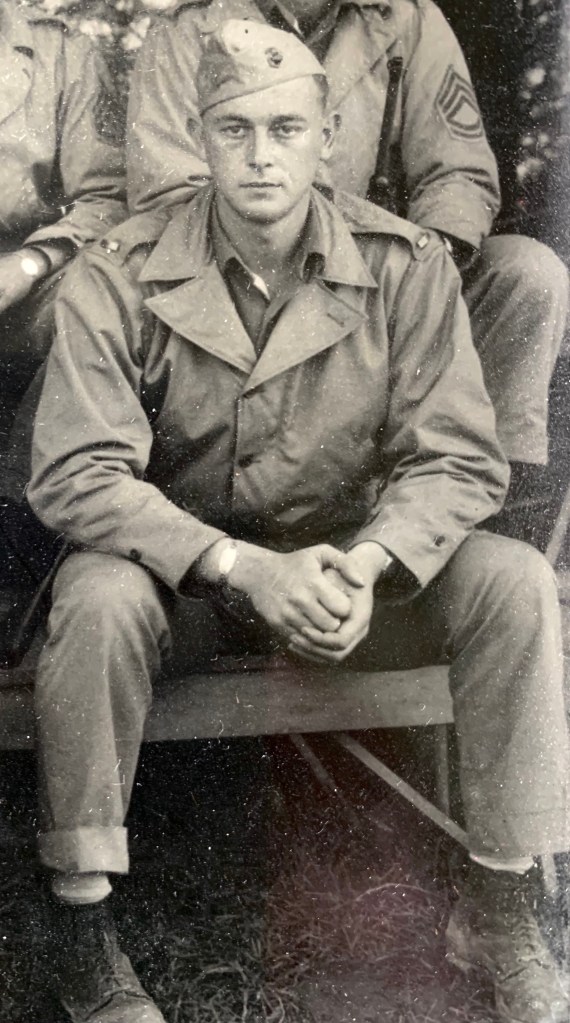
Today is the 80th anniversary of the Battle of Tarawa, one of the bloodiest Marine Corps island victories in World War II. My 21 year old father was there, leading a company of over 100 men into battle on the “second wave.”
Below is a portion of a 1944 letter he sent home to my mother about approaching the island on November 21, 1943. When he was not in active battle, he wrote to her nearly daily. He returned home in late 1945, physically uninjured. He never spoke about his 36 months in combat, except in the most general terms.
I had never seen him with a gun in his hands, and wasn’t aware he even had kept a gun after leaving the Marines. One day, in the early 1970’s, one of our farm’s beef animals was injured so my father, for the first time in thirty years, pulled out a gun from its hiding place to put down the suffering animal. I never saw the gun again and believe my father disposed of it soon after – firing that gun after so many years was too much for him.
I have no idea what all my father witnessed and had to experience while under orders during those months in the South Pacific. I do know he would have done whatever his superiors asked him to do, just as the men under his command trusted him to lead them, even into their dying hour. These young men, some as teenagers at the time, guaranteed us the freedoms we blithely take for granted now.
His letter, which made it past the Marine censors:
“You mentioned a story of Navy landing craft taking the Marines into Tarawa. It reminded me of something which impressed me a great deal and something I’m sure I’ll never forget.
So you’ll understand what I mean I’ll try to start with an explanation. In training – close order drill- etc. there is a command that is given always when the men form in the morning – various times during the day– after firing– and always before a formation is dismissed. The command is INSPECTION – ARMS. On the command of EXECUTION- ARMS each man opens the bolt of his rifle. It is supposed to be done in unison so you hear just one sound as the bolts are opened. Usually it is pretty good and sounds O.K.
Just to show you how the morale of the men going to the <Tarawa> beach was – and how much it impressed me — we were on our way in – I was forward, watching the beach thru a little slit in the ramp – the men were crouched in the bottom of the boat, just waiting. You see- we enter the landing boats with unloaded rifles and wait till it’s advisable before loading. When we got about to the right distance in my estimation I turned around and said – LOAD and LOCK – I didn’t realize it, but every man had been crouching with his hand on the operating handle and when I said that — SLAM! — every bolt was open at once – I’ve never heard it done better – and those men meant business when they loaded those rifles.
A man couldn’t be afraid with men like that behind him.“
~ Marine Captain Henry Polis in a 1944 letter home about the Battle of Tarawa November 20-23, 1943
For photos of the battle:
National WWII Museum: The Battle of Tarawa
The History Channel: Battle of Tarawa
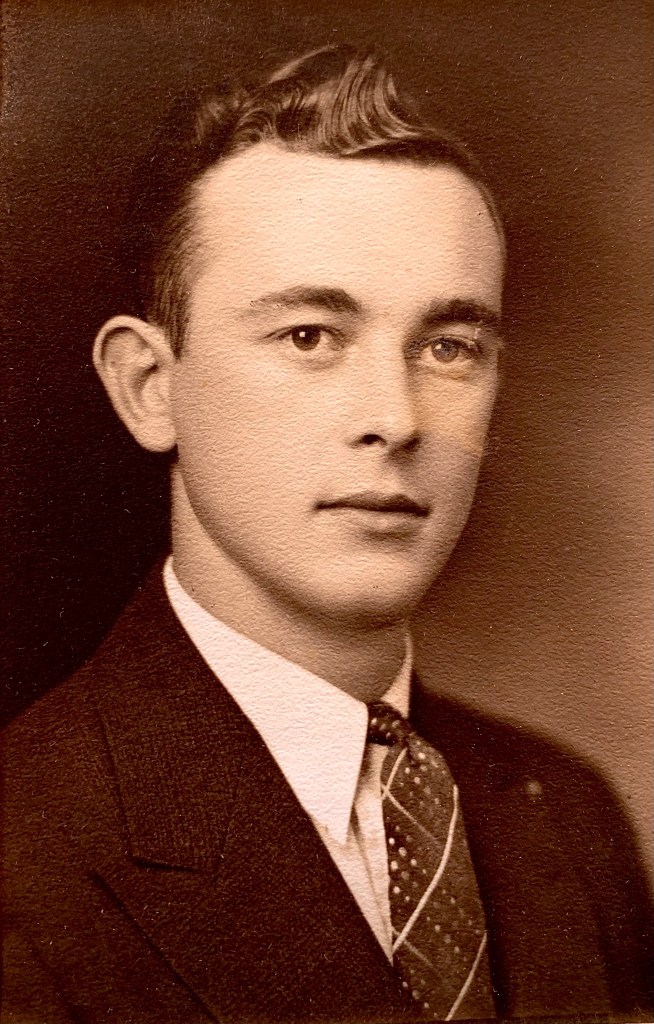
Make a one-time or recurring donation to support daily ad-free Barnstorming posts
Make a monthly donation
Make a yearly donation
Choose an amount
Or enter a custom amount
Your contribution is deeply appreciated.
Your contribution is appreciated.
Your contribution is appreciated.
DonateDonate monthlyDonate yearly




















